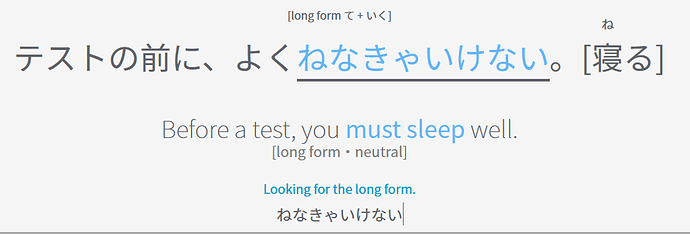I just got this question here
So, I tried to enter this and it told me to use it without ば (It did not say that it was wrong!)
So naturally I tried the きゃ version.
Again it didn’t say it was wrong, but silly me, of course the long from, so I do enter the long from:
Aaand… what? Now it’s wrong? But you just told me to enter this version?
This seems to be kind of bugged, does it not? I know this is a question looking for なくてはいけない, but then why does it instruct me to enter なきゃいけません and then says it’s wrong?






